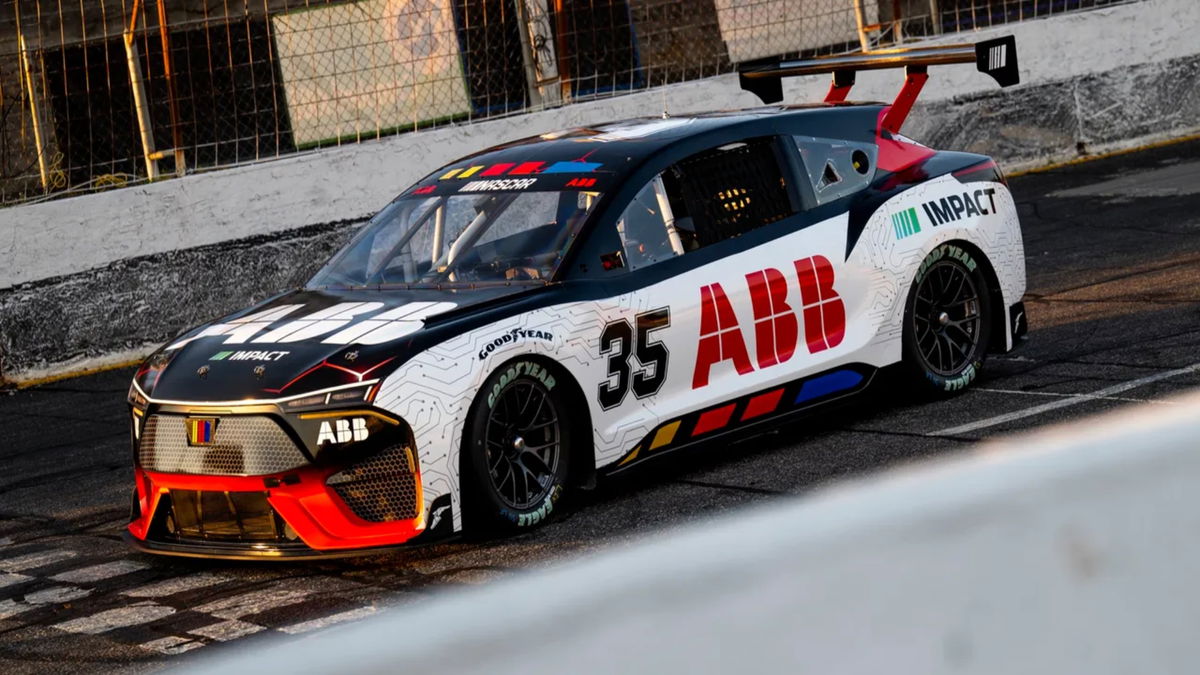

At the start of the 2025 season, NASCAR debuted its first electric vehicle (EV) prototype at the Daytona 500, with the Chevrolet Blazer EV SS as its pace car. This marked the first all-electric pace car to be used in any capacity in the sport, and it came with widespread disapproval. Ford had also followed in their footsteps, debuting a Mustang Mach E in Charlotte, North Carolina, the home of the sport, and fans started to worry about an all-electric future.
Watch What’s Trending Now!
However, all this started back in 2024 itself, when NASCAR revealed its ABB NASCAR Electrification Innovation Partnership at the Chicago Street Race. 2014 Cup Series Champion Kevin Harvick sounded his disapproval of the move back then, saying, “There is no future for NASCAR electric vehicle racing. If it does not make noise and smell like it’s burning gas, there is no freakin’ way.” Now, while Chevrolet and Ford work toward an electric future, Chevrolet’s parent company, General Motors, has taken a step in a direction that has prompted NASCAR fans to urge the governing body to do the same.
ADVERTISEMENT
General Motors takes a massive U-turn
When automakers are doubling down on electric vehicles (EVs), General Motors has taken a surprising turn back to its mechanical roots. For over a century, General Motors has played a central role in America’s automotive identity, from assembly lines of Detroit to the back roads of Central America, GM’s engineering and manufacturing have long been a symbol of industrial pride. Now, two years after moving away from its roots, the manufacturing giant has turned the tables on its EV plan!
GM announced an $888 million investment in its Tonawanda engine plant in Buffalo, New York, to support the production of V-8 engines! Yes, you read that right, folks. Along with that, the company’s quiet rollback of $300 million in electric vehicle-related commitments is signaling a deeper move back to internal combustion at a time when EV adoption is on hold. Their V-8 engines have powered generations of vehicles, including muscle cars, full-size trucks, and other automotive models. As the auto industry began to shift gears toward electric vehicles in the last decade, GM appeared to be leading the charge, committing billions to a cleaner future.
Sports Business Journal’s Adam Stern wrote on X, “General Motors has abandoned a plan to pump $300 million into electric-vehicle motor production at its upstate New York plant and will instead invest $888 million to make the latest V-8 engines.” – @WSJ,” But what led to this sudden change in mind?
ADVERTISEMENT
“General Motors has abandoned a plan to pump $300 million into electric-vehicle motor production at its upstate New York plant and will instead invest $888 million to make the latest V-8 engines.” – @WSJ https://t.co/wOhVm0qCJY
— Adam Stern (@A_S12) May 29, 2025
Well, as per a 2025 report by the Wall Street Journal, EV sales have been on the decline recently. April saw a 5% decline in EV sales in the U.S, and Tesla, one of the leading EV manufacturers in the U.S, saw its sales drop by a whopping 15%! “Tesla has been the killer whale, and they’re down,” Geoffrey Pohanka, chairman of Pohanka Automotive Group, said. General Motors has seen the signs, and they feel V8 engines are the way forward, and NASCAR fans are rejoicing at their decision. For many, the investment represents more than just a manufacturing decision.
ADVERTISEMENT
While the V-8 engine may be viewed by some as a thing of the past, it remains a critical part of GM’s business and brand identity, more so among truck and SUV buyers. The Tonawanda plant will continue producing the 5th generation V-8 while transitioning to the new 6th generation power plant in 2027, which will include combustion and thermal innovations that will increase the efficiency and reduce emissions. The investment includes new machinery, equipment, tools, and facility renovations, and builds on GM’s work to boost its manufacturing facilities in recent years, including a half-billion-dollar investment in its Flint Engine plant in 2023, the company said.
As expected, NASCAR fans took to social media to celebrate the investment, supporting the V-8 as the central identity of stock car racing, while others rebuked the use of EVs and their transition.
Top Stories
Greg Biffle’s $4M Prized Possession Goes Up for Sale After Tragic Crash, Leaving NASCAR Fans Heartbroken

NASCAR World Mourns as Former Watkins Glen President Michael Printup Passes Away at 60

Fox Broadcaster Pens Heartfelt Message as Veteran Announcer Quits NASCAR

Denny Hamlin Offers First Words Since Losing Beloved Father in Anniversary Fire

3x Indy 500 Champion Driver Eyes to Live 19-YO Dream With Surprise NASCAR Return

ADVERTISEMENT
GM’s power move ignites discussion among fans on NASCAR’s future
“Perhaps NASCAR will pay attention and go back to what made the sport what it was as well,” some fans have been overly protective of NASCAR’s past, and to revive it has been the biggest challenge even for some veterans. With Chevrolet and Ford backing the move earlier this year, fans want to see them roll back on their EV ideas as well.
One fan showed great enthusiasm over the news, writing, “GOOD!!!!!!! EV IS GARBAGE !!!” While NASCAR has been exploring the use of EVs in racing since July 2024, bringing in a new shift in the paradigm of the sport, some fans have also been concerned about the sudden change, which almost feels like drifting away from traditions.
“EVs had no chance from the start. The demand for them couldn’t be any lower,” said another fan. Mickey Anderson of Baxter Auto Group, which operates about 20 stores in Nebraska, Kansas, and Colorado, reflected this sentiment. He touched on a lack of discounts that had fueled a lot of the demand, and with prices rising, Anderson said, “I think natural demand is probably half that.”
ADVERTISEMENT
As for General Motors in particular, one fan reminisced about their own familial connections to the engine plant at Tonawanda. “My dad, grandpa, and uncle all have retired from that engine plant. Tonawanda has always been one of the best plants GM has. Well deserved investment. My dad also met Richard Childress there and gave Ryan Newman a tour of the plant when he visited.”
The Tonawanda Engine Plant has been central to GM’s manufacturing operation since it opened in 1938, it also has longstanding ties to NASCAR through its production of high-performance V-8 engines that have powered several Chevrolet race cars on the track, and with drivers already touring the engine plant, it has remained the backbone of the success of their teams.
However, some fans are also concerned with a wider issue altogether. “Good they can spend the money addressing the 800,000 6.2 L customers out here with blown motors,” commented another fan sarcastically. This engine, widely appreciated for its power and performance, is found in a range of GMC and Chevrolet trucks and SUVs, including the Sierra 1500, Yukon, and other full-size models. However, a manufacturing defect led to an immediate stop-sale order issued by General Motors on several vehicles equipped with its popular 6.2-liter V8 engine.
ADVERTISEMENT
Overall, the fan sentiment on GM’s decision is positive. While GM does have some issues to fix with its V8 engine, an $888 million investment could be the push they need to solve these problems. The next question is whether Chevrolet and Ford will follow suit and walk away from NASCAR’s electrification ambitions. What do you think? Let us know in the comments!
ADVERTISEMENT
ADVERTISEMENT
ADVERTISEMENT

